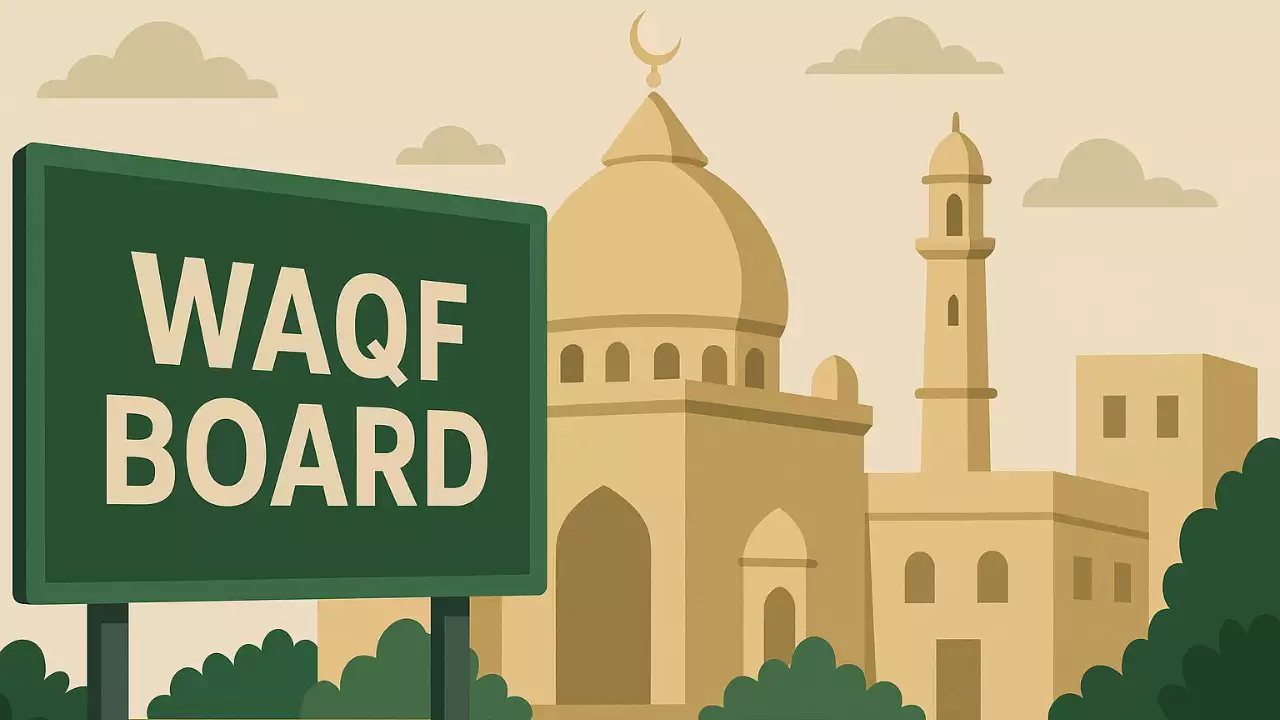History will never forget how political parties in democratic India have leveraged their brute numerical strength to dispossess the Muslim minority of their charitable lands and property—most recently exemplified by the passage of the Waqf Amendment Bill in the Lok Sabha on Thursday (April 3).
The support for this Bill from Hindutva forces is hardly surprising, given their well-documented hostility toward minorities. However, what is deeply unsettling is the complicity of several so-called secular parties. Their endorsement of the Bill exposes the emptiness of their professed commitment to minority rights and pluralism. Their secular rhetoric now stands exposed as little more than a deceptive smokescreen, carefully crafted to mask their communal politics.
With the passage of this Bill, the Muslim community is compelled to reassess its long-standing political trust in these so-called secular parties. It is now imperative for them to distinguish between genuine allies and those who betray them under the guise of friendship.
The Waqf Amendment Bill serves multiple objectives, none of which align with principles of justice or fairness. First, the Bill creates an avenue for widespread encroachment and plunder, effectively making it easier for government agencies and private entities to seize Waqf properties. Second, it significantly weakens the Waqf Tribunal, transferring excessive power into the hands of bureaucrats—an alarming violation of fundamental jurisprudential principles. Most shockingly, the government, which is itself a party to numerous disputes over Waqf land, has now positioned itself as the adjudicator in these very conflicts. This blatant conflict of interest constitutes a grave miscarriage of justice.
Third, the Bill may impose majoritarian supremacy. It sends an unambiguous message to the Muslim community: either submit to the will of the majority or risk further marginalization. Fourth, the Bill threatens to erode constitutional protections granted to minorities. It signals a broader trend—the gradual dismantling of constitutional safeguards for minority rights, including protections related to cultural identity and personal laws.
The judiciary, instead of acting as an independent arbiter and guardian of the Constitution, has increasingly succumbed to executive pressures. Rather than upholding constitutional principles, it has become a silent spectator—if not an outright enabler—of majoritarianism. The Babri Masjid-Ram Temple verdict stands as a glaring example of this judicial capitulation.
Fifth, the Bill may serve as a warning to all marginalized social groups. Its passage can be interpreted not merely as an assault on Muslims but as a broader threat to all minorities and weaker sections of society. It signals that their rights and properties are no longer as secure as they once were and may be seized under various pretexts to serve majoritarian agendas and profit-driven motives.
The Sachar Committee Report, commissioned by the Prime Minister, had provided crucial recommendations on how Waqf properties could be better managed for the welfare of the poor and marginalized. It emphasized that reclaiming encroached Waqf properties and improving their administration could generate substantial funds to support socio-economic upliftment. The report advocated for technological advancements, expert oversight, and even the establishment of a specialized UPSC cadre to manage Waqf assets. Yet, rather than implementing these progressive measures, the government has chosen a path that appears to facilitate the plundering of Waqf properties—going so far as to appoint non-Muslim members to oversee assets donated by believing Muslims for charitable purposes.
This betrayal by so-called secular parties has left the minority community in shock and despair. Since the Nehru era, Waqf properties have been systematically looted, but now this plunder appears to have been granted legal sanction. Other minority and marginalized communities must take heed—every common property could become a potential target for exploitation.
In these trying times, patience, wisdom, and strategic action are essential. Rash decisions driven by emotion will only deepen the crisis. Rather than allowing ourselves to be divided over petty issues, we must prioritize broader unity with other oppressed sections of society. This crucial moment also serves as a litmus test for genuine secular forces—where do they stand in this critical hour?
Dr. B.R. Ambedkar repeatedly warned that democracy cannot survive without safeguarding the rights of minorities—whether religious, caste-based, or Adivasi. Today, one can only imagine how Babasaheb, the chief architect of the Indian Constitution, would react to this assault on the very principles he enshrined. As someone born into the majority community, I hang my head in shame at this brazen display of majoritarianism.
But the bigger question remains: Will India continue down the path of majoritarian dominance, or will it reclaim its constitutional commitment to justice and equality? The future will depend on our actions. Remember, rights are not granted as charity—they are won through struggle. Similarly, the weakening of movements led by marginalized communities threatens to undo their hard-earned gains. Political processes are dynamic, and to prevent further setbacks, we must act now—peacefully and democratically.
(Dr. Abhay Kumar holds a PhD in Modern History from the Centre for Historical Studies, Jawaharlal Nehru University. His forthcoming book explores Muslim Personal Law. Email: debatingissues@gmail.com)
Disclaimer: The views expressed here are the author’s personal views, and do not necessarily represent the views of Sabrangindia.
